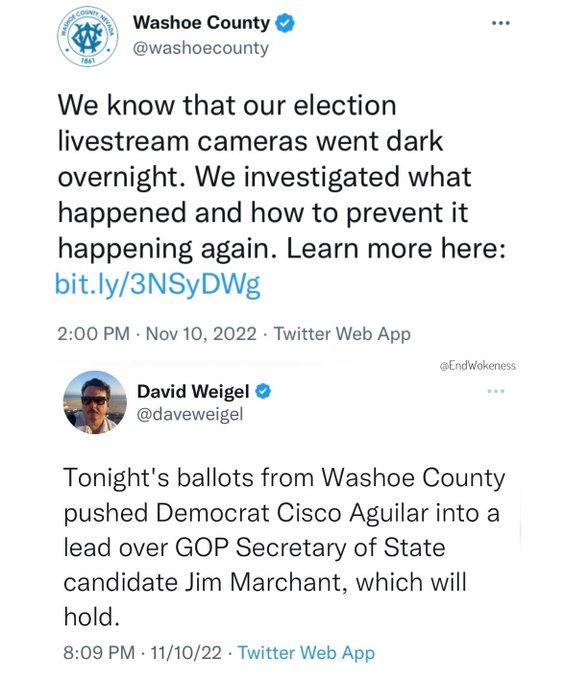Driven by blue cites like Nashville and Memphis.
Join the Hide community
Get access to live stream, lessons, the post exchange, and chat with other snipers.
Register
Download Gravity Ballistics
Get help to accurately calculate and scope your sniper rifle using real shooting data.

Install the app
How to install the app on iOS
Follow along with the video below to see how to install our site as a web app on your home screen.
Note: This feature may not be available in some browsers.
You are using an out of date browser. It may not display this or other websites correctly.
You should upgrade or use an alternative browser.
You should upgrade or use an alternative browser.
PortaJohn
- Thread starter Lowlight
- Start date
-
- Tags
- sniper's hide
Ok so let’s talk about this and the dangers of it. But first: I do think it telling that you can’t seem to voice a personal opinion any longer but try to make arguments behind others’ statements. That tells me you don’t have the ability to argue intelligently or have command of the subject matter at hand.
Benjamin Franklin to Robert Morris
25 Dec. 178
All Property, indeed, except the Savage's temporary Cabin, his Bow, his Matchcoat, and other little Acquisitions, absolutely necessary for his Subsistence, seems to me to be the Creature of public Convention. Hence the Public has the Right of Regulating Descents, and all other Conveyances of Property, and even of limiting the Quantity and the Uses of it. All the Property that is necessary to a Man, for the Conservation of the Individual and the Propagation of the Species, is his natural Right, which none can justly deprive him of: But all Property superfluous to such purposes is the Property of the Publick, who, by their Laws, have created it, and who may therefore by other Laws dispose of it, whenever the Welfare of the Publick shall demand such Disposition. He that does not like civil Society on these Terms, let him retire and live among Savages. He can have no right to the benefits of Society, who will not pay his Club towards the Support of it.
The graph you have on GDP would be very small compared to what it is if you were to take away that one thing that makes a man work himself to death: the prospect of a better life for himself and his children. If a man cannot save there is no reason to work for anything beyond bread, no reason to strive exists. This is what occurred in the communist block countries. The ones who had the socialism you dream of. They failed and then turned their back on such slavery to the government, which was ruled by rich oligarchs.
You can throw out the snippets of letters from the Founding Fathers all day, that doesn’t mean they were right in their thinking in this matter, nor were they gods. Marx had not come along yet and they did not have access to the horrors of communism. It is also noteworthy that they had wills and left their belongings to others.
Agreed and it's the leadership of the military and police forces who protect them from average citizen. The rank-and-file military and police protect their leadership for a paycheck and pension!But, the script is always the same. The corrupt bureaucrats/politicians sell their souls to the devil (IMF/World Bank/Rothschilds) for a few pieces of Silver and the (massive) toll is extracted from the Citizens. The average Citizen simply got fucked. They were powerless to do anything about it and the corrupt politicians were never held accountable.
The average citizen has zero representation or power in the .gov or their country!
John Adams, Defence of the Constitutions of Government of the United States
If this is the progress and course of things (and who does not know that it is?) it follows, that it is the true interest and best policy of the common people to take away from the body of the gentlemen all share in the distribution of offices and management of the executive power. Why? Because if any body of gentlemen have the gift of offices, they will dispose of them among their own families, friends, and connections; they will also make use of their votes in disposing of offices, to procure themselves votes in popular elections to the senate or other council, or to procure themselves appointments in the executive department. It is the true policy of the common people to place the whole executive power in one man, to make him a distinct order in the state, from whence arises an inevitable jealousy between him and the gentlemen; this forces him to become a father and protector of the common people, and to endeavor always to humble every proud, aspiring senator, or other officer in the state, who is in danger of acquiring an influence too great for the law or the spirit of the constitution. This influences him to look for merit among the common people, and to promote from among them such as are capable of public employments; so that the road to preferment is open to the common people much more generally and equitably in such a government than in an aristocracy, or one in which the gentlemen have any share in appointments to office.
From this deduction it follows, that the precept of our author [Marchamont Nedham], "to educate children (of the common people) in principles of dislike and enmity against kingly government, and enter into an oath of abjuration to abjure a toleration of kings and kingly powers," is a most iniquitous and infamous aristocratical artifice, a most formal conspiracy against the rights of mankind, and against that equality between the gentlemen and the common people which nature has established as a moral right, and law should ordain as a political right, for the preservation of liberty.
By kings and kingly power is meant, both by our author and me, the executive power in a single person. American common people are too enlightened, it is hoped, ever to fall into such a hypocritical snare; the gentlemen, too, it is hoped, are too enlightened, as well as too equitable, ever to attempt such a measure; because they must know that the consequence will be, that, after suffering all the evils of contests and dissensions, cruelty and oppression, from the aristocratics, the common people will perjure themselves, and set up an unlimited monarchy instead of a regal republic.
This is correct and refutes your own beliefs. I feel like this is appropriate here:
John Adams, Defence of the Constitutions of Government of the United States
If this is the progress and course of things (and who does not know that it is?) it follows, that it is the true interest and best policy of the common people to take away from the body of the gentlemen all share in the distribution of offices and management of the executive power. Why? Because if any body of gentlemen have the gift of offices, they will dispose of them among their own families, friends, and connections; they will also make use of their votes in disposing of offices, to procure themselves votes in popular elections to the senate or other council, or to procure themselves appointments in the executive department. It is the true policy of the common people to place the whole executive power in one man, to make him a distinct order in the state, from whence arises an inevitable jealousy between him and the gentlemen; this forces him to become a father and protector of the common people, and to endeavor always to humble every proud, aspiring senator, or other officer in the state, who is in danger of acquiring an influence too great for the law or the spirit of the constitution. This influences him to look for merit among the common people, and to promote from among them such as are capable of public employments; so that the road to preferment is open to the common people much more generally and equitably in such a government than in an aristocracy, or one in which the gentlemen have any share in appointments to office.
From this deduction it follows, that the precept of our author [Marchamont Nedham], "to educate children (of the common people) in principles of dislike and enmity against kingly government, and enter into an oath of abjuration to abjure a toleration of kings and kingly powers," is a most iniquitous and infamous aristocratical artifice, a most formal conspiracy against the rights of mankind, and against that equality between the gentlemen and the common people which nature has established as a moral right, and law should ordain as a political right, for the preservation of liberty.
By kings and kingly power is meant, both by our author and me, the executive power in a single person. American common people are too enlightened, it is hoped, ever to fall into such a hypocritical snare; the gentlemen, too, it is hoped, are too enlightened, as well as too equitable, ever to attempt such a measure; because they must know that the consequence will be, that, after suffering all the evils of contests and dissensions, cruelty and oppression, from the aristocratics, the common people will perjure themselves, and set up an unlimited monarchy instead of a regal republic.

JUST IN: Judge Overseeing Sandy Hook Case Freezes Alex Jones' Assets | The Gateway Pundit | by Cristina Laila
A state judge overseeing the Sandy Hook case froze Alex Jones’ assets late Wednesday.www.thegatewaypundit.com
This just raises the stakes. Will this go to SCOTUS, and finally put free speech on the docket?
What else does Jones have to lose? Why would he not appeal?
So if they know this why are they not having a revote

Maricopa County Now Admits That Over 30% Of Polling Locations Were Affected By Machine Failures, NOT 20% As Previously Stated - But They Want Us To Believe Only 17,000 Ballots Transported For Tabulation | The Gateway Pundit | by Jordan Conradson
Maricopa County has admitted in a new statement that 70 out of 223 voting centers were impacted by the election day debacle, where tabulators failed the moment that polls opened on Tuesday.www.thegatewaypundit.com
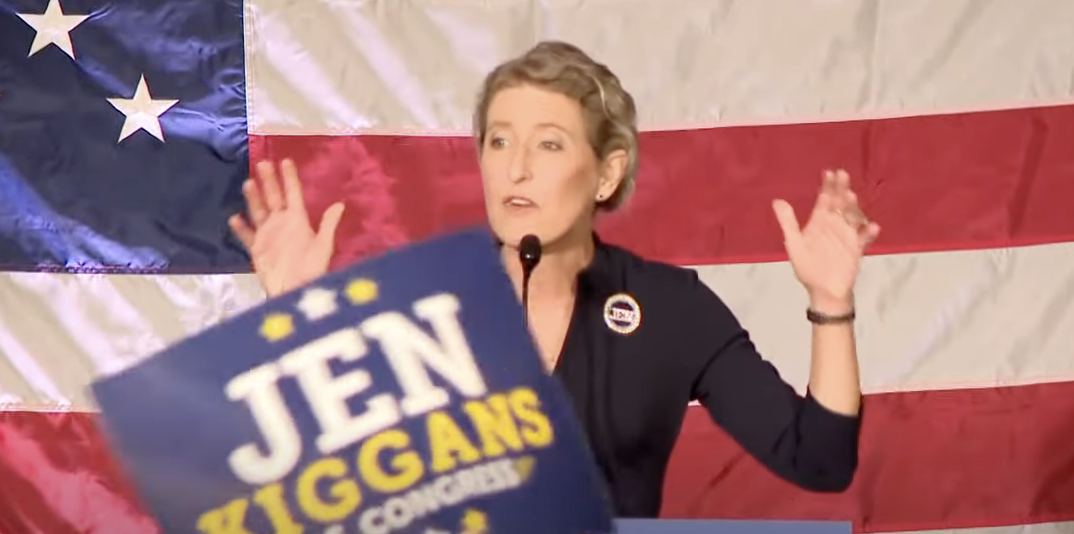
Democrats Are Wrong To Insist That Dobbs Stopped Red Wave
There is little evidence to back up the theory that Dobbs played a 'big,' or even a minor, part in the GOP’s 2022 underperformance.

The Arizona Voting Machines Disaster in Maricopa County is Even Worse Than We Thought - El American
Arizona election officials' use of voting machines in Maricopa County has once again cast a dark cloud over a highly contested election.
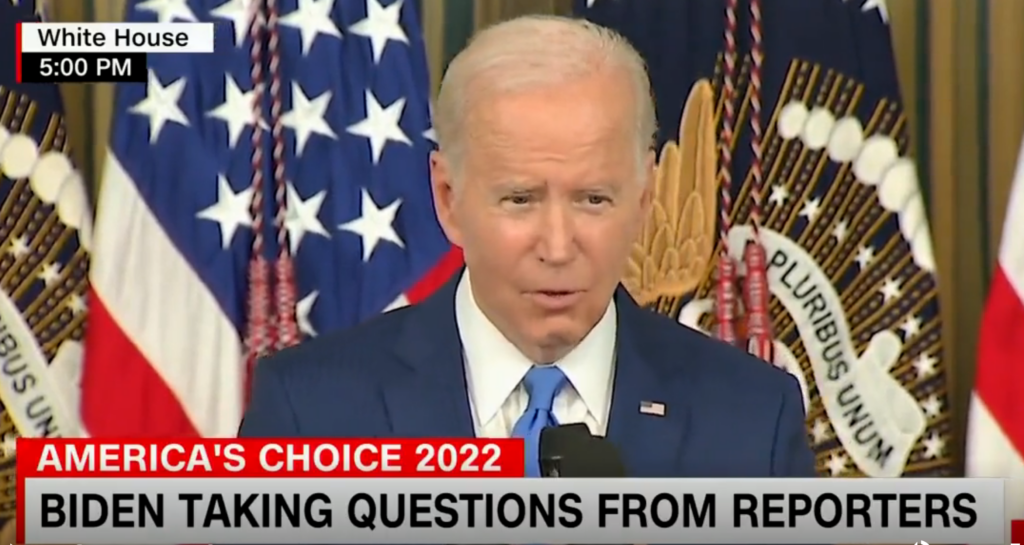
President Joe Biden Threatens Elon Musk: 'There's A Lot of Ways' to Intervene in His Twitter Takeover - El American
President Joe Biden on Wednesday threatened Elon Musk with a 'national security' review after taking over Twitter and vowing to implement new safeguards for

Opinion | 12 More Incidents in Which Lawful Gun Owners Stopped Criminals
Just this year, a more comprehensive study concluded that roughly 1.6 million defensive gun uses occur in the United States every year.

The Ugly Truth About A Vaccine That Didn’t Work - GreatGameIndia
The KFD pathogen can be fatal. The jab meant to counteract it, however, lost its effectiveness as the regulator dozed off. This is the ugly truth about a vaccine that didn’t work.
 greatgameindia.com
greatgameindia.com

Schumer slams ‘MAGA judge’ for not letting Biden violate constitution with student debt relief order · American Wire News
"This MAGA judge is siding with the special interests over what’s best for the people. This is why we need a Senate Democratic Majority."

Oregon Sheriff Announces Her Office Won't Enforce New Magazine Ban
Linn County Sheriff Michelle Duncan is making clear her office will not be enforcing Oregon's new "high capacity" magazine ban.
Yeah, cause nothing else happened during those 18 years that may have had an effect, correlation boy. Hell, right as your little graph starts taking a nose dive, Giuliani took office in NYC and started cleaning up that cesspool. Oh yeah, a fellow named Reagan was entering his second term and the economy was finally pulling out of a nose dive. No wonder you climate morons buy that garbage, you only see the inputs that point toward your preferred narrative.

7-Time Deported Illegal Alien Accused of 5 Rapes over 2 Decades
An illegal alien, deported seven times, is now facing charges that he committed at least five rapes over the course of nearly two decades.

Two More Oregon Counties Just Voted To Become Part Of The State Of Idaho
Two more counties in Oregon just voted to join the state of Idaho. Several other counties have already done this in recent years. The reasons are pretty simple. These Oregonians are tired of being associated with the radical left that rules the city of Portland and drives policy for the rest of...
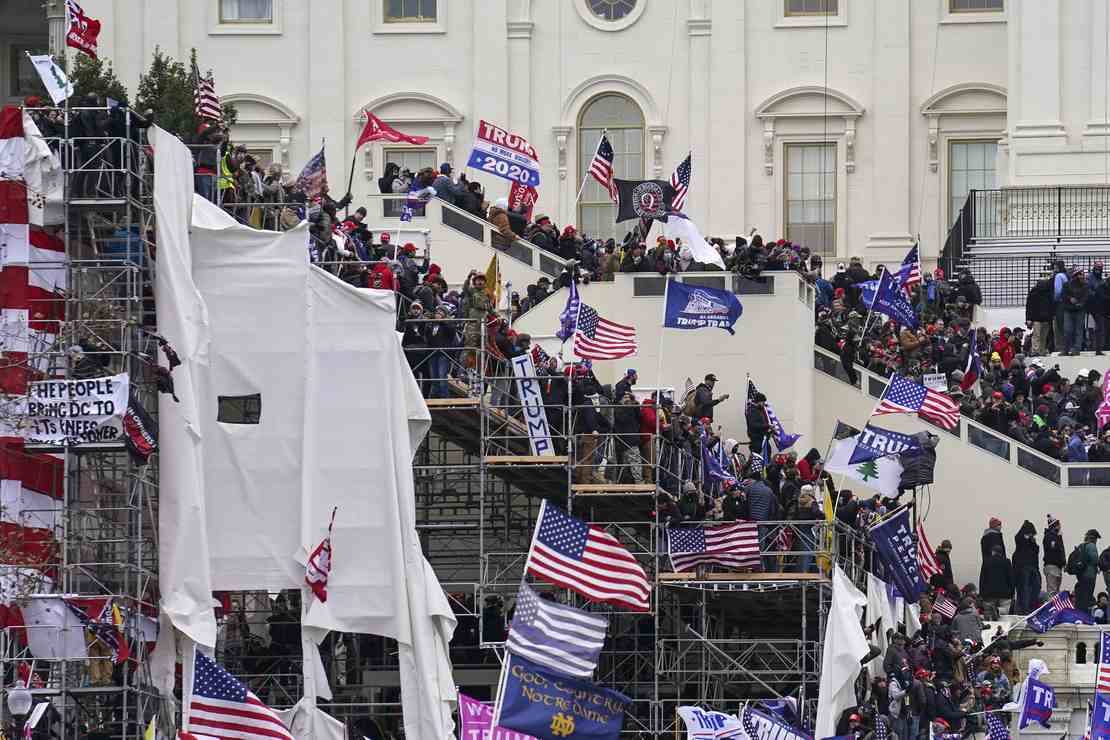

A veteran medical examiner who reviewed 4000 Covid deaths explains how many were REALLY from Covid (and how many were of healthy people)
Dr. Brian Peterson ran the Milwaukee County medical examiner's office until he was suddenly forced to retire in September; did his honesty about Covid cost him his job?
Nothing in the article was a surprise but it is infuriating to have what we know reinforced time and time again.
A veteran medical examiner who reviewed 4000 Covid deaths explains how many were REALLY from Covid (and how many were of healthy people)
Dr. Brian Peterson ran the Milwaukee County medical examiner's office until he was suddenly forced to retire in September; did his honesty about Covid cost him his job?alexberenson.substack.com
My very first post in on this site, after a very long time and after losing my username and password from long ago..
I am one of those long time lurkers, who in the past few years, usually sees posts as a result of internet searches. I was once a member but was unable to do a password reset due to my having registered with a U.S. government .gov email account. So here I am now, a new member again.
This thread here, I never read before. On reading the last 3 pages, I have the impression that one individual posting here could likely be the same individual that posts on a facebook webpage that is restricted to those military individuals who have a past or present occupation in INTEL / ELINT /SINGINT specialties. I am amazed at how similiar his posts are to those of that other facebook person. I suspect that he is not that other individual, but one that follows the same path of the one that I am more familiar with.
The individual in this thread posted a quote that seems to imply one thing, but without the rest of the letter the quote is from, I believe lacks context. Here is the paragraph from the letter that the quote was from.
Forgive me for my jumping right into what may be a political firestorm in my first, new post, of my new persona in this website. Or don't!
The question Whether one generation of men has a right to bind another, seems never to have been started either on this or our side of the water. Yet it is a question of such consequences as not only to merit decision, but place also, among the fundamental principles of every government. The course of reflection in which we are immersed here on the elementary principles of society has presented this question to my mind; & that no such obligation can be so transmitted I think very capable of proof. I set out on this ground, which I suppose to be self-evident, ‘that the earth belongs in usufruct to the living’: that the dead have neither powers nor rights over it. The portion occupied by any individual ceases to be his when himself ceases to be, & reverts to the society. If the society has formed no rules for the appropriation of it’s lands in severalty, it will be taken by the first occupants. These will generally be the wife & children of the decedent. If they have formed rules of appropriation, those rules may give it to the wife and children, or to some one of them, or to the legatee of the deceased. So they may give it to his creditor. But the child, the legatee, or creditor takes it, not by any natural right, but by a law of the society of which they are members, & to which they are subject. Then no man can, by natural right, oblige the lands he occupied, or the persons who succeed him in that occupation, to the paiment of debts contracted by him. For if he could, he might, during his own life, eat up the usufruct of the lands for several generations to come, & then the lands would belong to the dead, & not to the living, which would be the reverse of our principle.
I am one of those long time lurkers, who in the past few years, usually sees posts as a result of internet searches. I was once a member but was unable to do a password reset due to my having registered with a U.S. government .gov email account. So here I am now, a new member again.
This thread here, I never read before. On reading the last 3 pages, I have the impression that one individual posting here could likely be the same individual that posts on a facebook webpage that is restricted to those military individuals who have a past or present occupation in INTEL / ELINT /SINGINT specialties. I am amazed at how similiar his posts are to those of that other facebook person. I suspect that he is not that other individual, but one that follows the same path of the one that I am more familiar with.
The individual in this thread posted a quote that seems to imply one thing, but without the rest of the letter the quote is from, I believe lacks context. Here is the paragraph from the letter that the quote was from.
Forgive me for my jumping right into what may be a political firestorm in my first, new post, of my new persona in this website. Or don't!
The question Whether one generation of men has a right to bind another, seems never to have been started either on this or our side of the water. Yet it is a question of such consequences as not only to merit decision, but place also, among the fundamental principles of every government. The course of reflection in which we are immersed here on the elementary principles of society has presented this question to my mind; & that no such obligation can be so transmitted I think very capable of proof. I set out on this ground, which I suppose to be self-evident, ‘that the earth belongs in usufruct to the living’: that the dead have neither powers nor rights over it. The portion occupied by any individual ceases to be his when himself ceases to be, & reverts to the society. If the society has formed no rules for the appropriation of it’s lands in severalty, it will be taken by the first occupants. These will generally be the wife & children of the decedent. If they have formed rules of appropriation, those rules may give it to the wife and children, or to some one of them, or to the legatee of the deceased. So they may give it to his creditor. But the child, the legatee, or creditor takes it, not by any natural right, but by a law of the society of which they are members, & to which they are subject. Then no man can, by natural right, oblige the lands he occupied, or the persons who succeed him in that occupation, to the paiment of debts contracted by him. For if he could, he might, during his own life, eat up the usufruct of the lands for several generations to come, & then the lands would belong to the dead, & not to the living, which would be the reverse of our principle.

Grades of Attractive Women Fell After Classes Moved Online: Study
Swedish research shows the grades of attractive females fell when classes moved online during lockdown, while attractive males were unchanged

Oregon Sheriff Announces Her Office Won't Enforce New Magazine Ban
Linn County Sheriff Michelle Duncan is making clear her office will not be enforcing Oregon's new "high capacity" magazine ban.
WOW!

UK: Six Local Govts Take Central Govt to Court to Stop Migrant Hotels
Six local governments are now fighting Britain's central government in court after having hotels in their area flooded with migrants.

Report: Chicago Man Cuts Off Ankle Monitor, Attempts to Murder 2 People in IA
A Chicago man was arrested on Monday for allegedly cutting off his electric monitoring bracelet before driving to Iowa and attempting to murder two people, CWB Chicago reported.
Says the guy who wants a more poweful government?
Aw shit.......
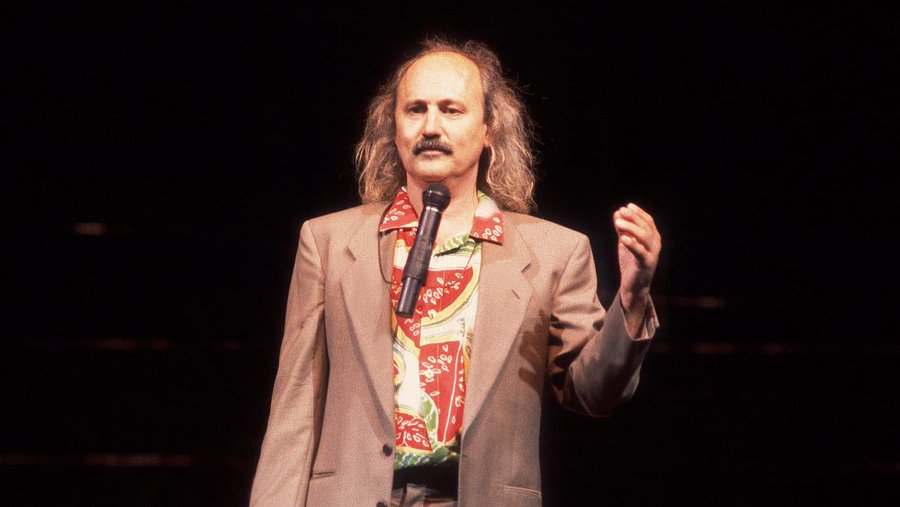
 citizenfreepress.com
citizenfreepress.com

Gallagher passes away at 76…
Gallagher died while under hospice care in the Palm Springs area early Friday morning. His manager said Gallagher died of massive organ failure. He had been in ill health for a…
 citizenfreepress.com
citizenfreepress.com
What about the ugly ones?
Grades of Attractive Women Fell After Classes Moved Online: Study
Swedish research shows the grades of attractive females fell when classes moved online during lockdown, while attractive males were unchangedwww.breitbart.com
Interaction with blinde takes attention away from reality. He is disingenuous. It is not by accident that he and others like him distract. Like the guy in boot camp who couldn’t stop fiddling with his shit before an inspection is the guy who continues to engage blinde.This is classic causation without correlation. You are implying that a lower top tax rate has been the sole reason for a decreased GDP. The other truly impactful economic factors don’t play into that? You need to educate yourself on basic economics. The dates to 2005 include several recessions, credit crunches, stock market dumps, industry crises, financial market issues, etc. You are projecting a fact on top of another trend to create a false narrative.
You think the members here are dullards. The level of education of many here eclipses what is generally to be found in mainstream society, they shout down your arguments with facts repeatedly. You are showing us the level of critical analysis that you apply to what people are feeding you. Don’t swallow that hook - THINK, Research, analyze the data. Educate yourself.
Be careful. Soon your electronic life will be cancelled totally randomly because this group does not run our society and anyone who says it does will be punished severely by the group that does not exist.
Wrong we are gonna need Andrew Jackson....but I guarantee, if you didn't like Trump, you wouldn't like Jackson. Had he lived in our day he would have made Tweets that made Trump look polite.Bottom line is at best we are not going to vote our way out of this. It is going to take Thomas Jefferson, John Adams , and the rest of the men who signed the Declaration determination. If you are not ready for that then your just a Twitter guy. Good luck. Stacy it's not healthy to eat everything you see 24/7
What was the name of the other leftist troll Federagentguy or something like that?
What the DNC or RNC are paid to think by their donors should have no effect on what policies the voters want.
My preferred policies are:
No money in politics
Maximum of 6 years in office for every politician and judge
No income tax on the first $250,000 of income
Wealth tax on billionaires and giant corporations
Increase base pay and minimum wage by $1000 per month
Teach Civics in school again
Pay students to take ROTC classes
Build federal colleges than only teach STEM and medical degrees
Everybody goes into the military when they turn 18 and gets to keep their M4 when they get out
No infringement of the right to bear arms
No taxes on guns, ammo or suppressors
Public shooting ranges run by the military in every town
Classify the entire US supply chain as a national security asset
Make more and better solar panels than China
Kick China and Russia out of every trade organization until they have free and fair elections
Every large corporation is required to have a union
No spying on American citizens
Replace tax breaks on Yachts and private planes with a luxury tax
Make it illegal for Generals to work for foreign countries or defense contractors
Add a Too Big to Fail tax
Make political corruption a capitol offense
Replace prisons with floggings
Require a license to have children
Tax unhealthy foods
Subsidize family gardens
Rebuild our mental health system
Make pharmaceutical countries sell drugs to Americans for the same price as they charge other countries
Offer a public option for health insurance
Enforce the immigration and refugee laws
Break up the RNC and DNC for being criminal organizations
Give every party equal access to the ballot
Raid every offshore tax haven that has participated in fraud or tax evasion
Require every American citizen to know English
Ban the use of any other language in government business
Charge companies for outsourcing American jobs to other countries
Force Brazil to sell us the Amazon and shoot anybody that comes near it
Deploy snipers to shoot anybody that poaches endangered animals
Your slip is showing.
Similar threads
- Replies
- 1
- Views
- 502
